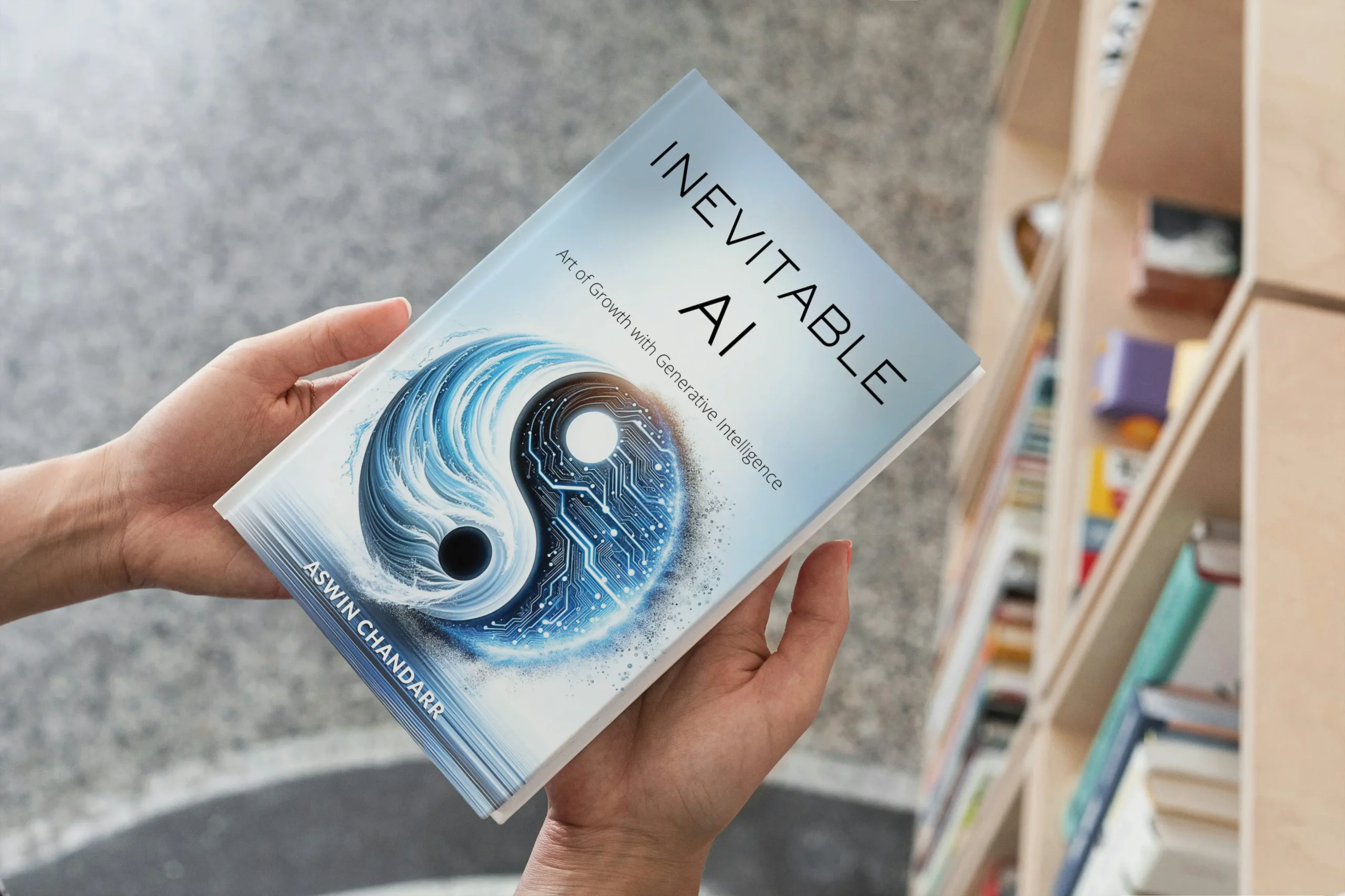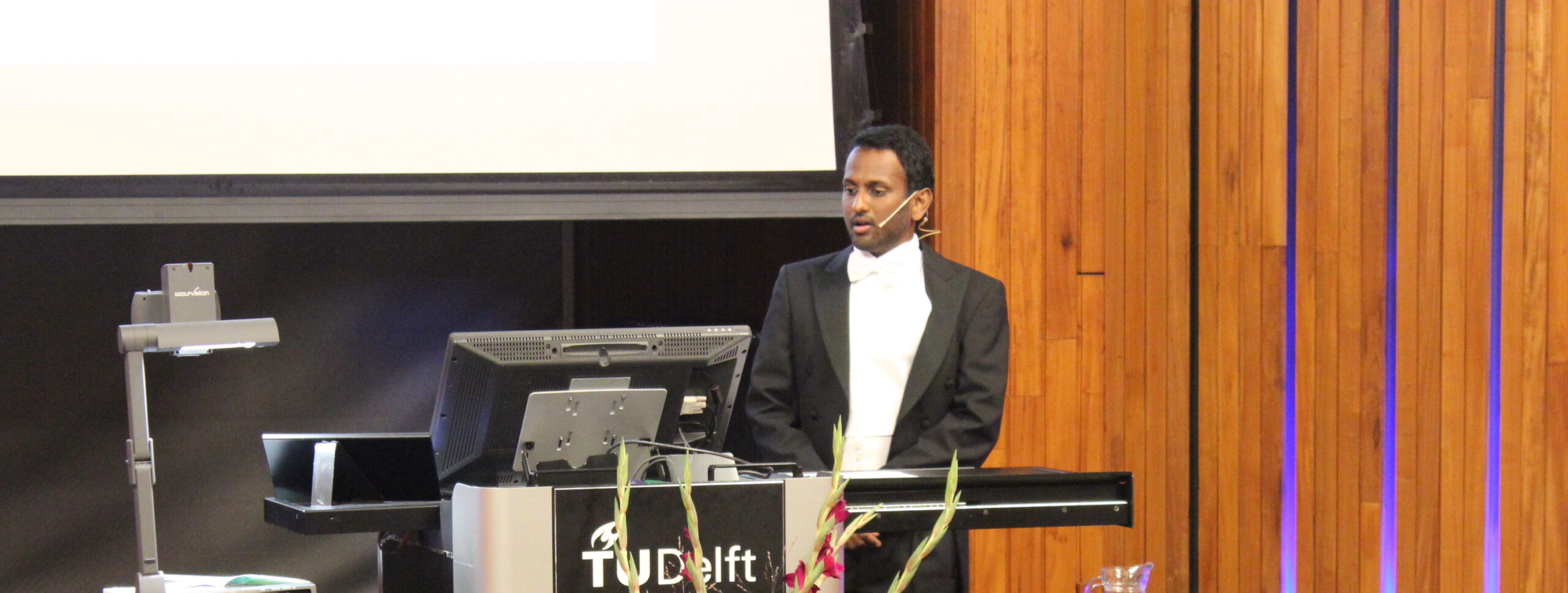Aswin Chandarr is a thought leader, entrepreneur, and inventor who is at the forefront of the rapidly evolving field of artificial intelligence and robotics. With a unique blend of expertise in technology, business, ethics, human cognition, and the nature of knowledge and learning, he is well-positioned to guide the development of these incredible technologies for the benefit of humanity.
With over 18 years of ground breaking work in AI and robotics, Chandarr has dedicated his career to unraveling the complexities
of technology and its implications for humanity’s future. As the visionary founder of The Global AI Transformation Institute (GAITI), Chandarr has created a pivotal platform committed to demystifying AI’s vast capabilities and potential for societal benefit. Promoting a multidimensional view of technology as a force for global progress and innovation, it offers unparalleled consulting and training that intersects business, education, and policy.
In his latest book “The Inevitable AI: Art of Growth with Generative Intelligence“, Aswin provides a comprehensive and holistic understanding of AI from first principles. Starting from the origins of AI the book takes readers through a journey about its core nature, its capabilities, its limitations, the vast potential yet to come, and the impending perils of its misuse. The book gives a practical course of action for multiple stakeholders such as professionals, enterprises, investors, startups, governments and policy makers.

Aswin’s interest in the confluence of technology, ethics, and business began early in his career, when he set out to solve some of the hardest problems facing the field of robotics. He quickly gained a reputation as a visionary thinker and creative problem solver, bringing his ideas to life through innovative and cutting-edge robotic designs.
With over 15 years of experience in AI and robotics, Aswin has developed a deep understanding of the complex interplay between human and machine learning, and the ways in which these two fields can work together to shape the future of humanity. He has an impressive track record of pioneering research, and his work has been published in some of the world’s leading academic journals.
Aswin’s passion for robotics and AI is matched only by his commitment to nurturing the next generation of thinkers and innovators. He is deeply invested in helping young people understand the nature of knowledge and learning, and in teaching them how to cut through the noise of information overload to discern what is truly valuable and use it with wisdom. As we move into the age of AI, he believes that this is more important than ever, as fake news and false information can be hard to distinguish from reality.
One of Aswin’s most notable achievements was his PhD in cognitive robotics from the prestigious Tu-Delft in the Netherlands, where he was mentored by Prof. Pieter Jonker, one of the founding fathers of the Dutch RoboCup movement. As part of his PhD research, Aswin explored the intrinsics of human cognitive development from childhood, and how we can make robots perceive the world in a way that is similar to humans. He recognized that effective communication between humans and robots is vital for successful collaboration, and set out to create robots that could perceive the world in a way that would allow for more seamless interaction with humans.

After completing his PhD, Aswin obtained an MBA to figure out effective ways to translate technology into real, useful robots that could benefit people in their everyday lives. He founded several successful startups, including Robot Care Systems, where he built the care robot LEA, which can assist elderly people to stay independently at home while giving them physical, mental, and emotional support. Aswin’s work has had a profound impact on the lives of countless people, and his robots have become integral parts of their daily routines.
Inspired by the pandemic period, Aswin was instrumental in founding Loop Robots, where he quickly developed and deployed “Autonomous Disinfection Robots” to protect the most vulnerable members of society from contagious and destructive microbes and pathogens, and to fight “Hospital Acquired Infections.” This work has been especially important in the fight against COVID-19, and has helped to save countless lives.
The current dawn of Age of AI is rapidly changing the relation between machines and humanity. Historically, there were clear boundaries on what a human can do and what a machine can (can potentially do). Though, the complexity of machines have enormously advanced over the decades, their course has remained far apart from core human capabilities. Now with AI it will become impossible to ascertain if one is having a conversation with man or a machine, it becomes a very powerful yet very dangerous power.
Technologists, researchers, engineers are so deeply engrossed and excited by pushing limits of what technology can do, while they forget – blinded to see the impact (good and bad) on the larger world. On the other hand, governments, lawyers , thought leaders are so far away from deeply understanding the rapid new technologies that they cannot direct the evolution in the right way.
Positioned at the juxtaposition of expertises in technology, business, ethics, human cognition, nature of knowledge and learning, Aswin Chandarr is uniquely placed as a thought leader, writing and triggering conversations on these various aspects to direct the evolution of such incredible technologies to the larger benefit of humanity.